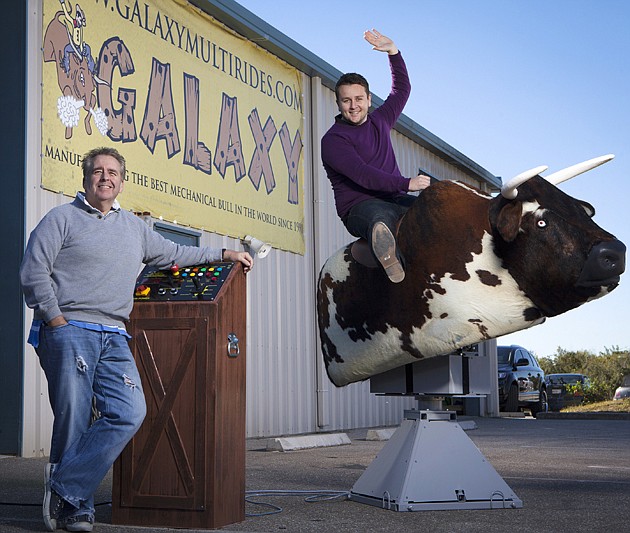- December 15, 2025
-
-
Loading

Loading

Robin Whincup is one entrepreneur who doesn't take any bull.
He sells it instead.
Mechanical bulls, that is, through Galaxy Multi Rides. The Port Charlotte-based company, which Whincup runs with his son, Mike Whincup, is a unique Florida business: It manufactures and sells a variety of mechanical bulls, inflatable games and obstacle courses to a host of clients that include bars, traveling carnivals and theme parks. The firm's rides can be customized and designed to match a client's specific needs, and go beyond the standard country and western wannabe cowboy bull ride. Think mechanical bull-like machines that look like a sneaker, a bulldog, a beer bottle, or even a Buffalo chicken wing.